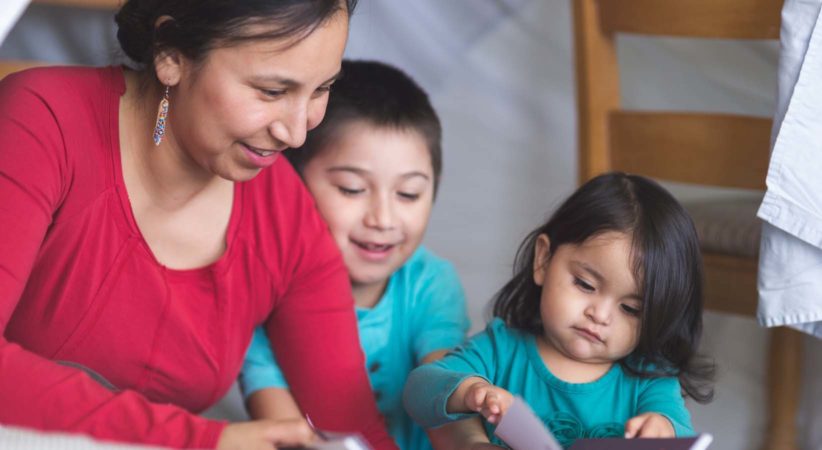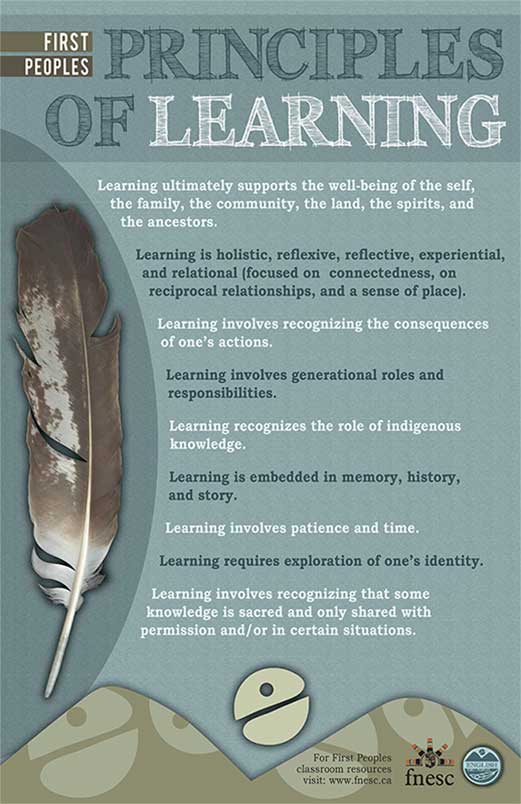
First Peoples Principles of Learning
The First Peoples Principles of Learning represent the shared wisdom of Indigenous Knowledge-Keepers, scholars, and educators within First Peoples communities in BC. While each First Nation has its own unique identity, values, and practices, these are commonly held understandings about how we interact and learn about the world. The principles are described in the following poster from the First Nations Education Steering Committee.
“These First Peoples Principles of Learning are thoroughly compatible with approaches to teaching and learning that emphasize:
- building on what students are already familiar with (both abstract knowledge and concrete knowledge)
- exploring and building on students’ interests (e.g., asking learners about what is important to them as a way to identify what context will prove meaningful to them as a basis for learning)
- stimulating students’ innate curiosity and desire to explore
- communicating a positive and enthusiastic attitude toward learning (e.g., being willing to take risks and make mistakes and encouraging students to do the same)
- promoting and rewarding perseverance (e.g., giving necessary time for difficult problems and revisiting them on multiple occasions)
- encouraging students to reflect on and be explicit about their own thinking processes and the transformations in their own understanding.”
– FNESC/FNSA Teacher Resource Guides, Units, Lesson, and Activities for Blended or Remote Learning Contexts (2020), p. 11.
The principles are interconnected and inclusive of all learners.
Learn more
Visit Jo-Anne L. Chrona’s First Peoples Principles of Learning website. It contains background information about the First Peoples Principles of Learning and an explanation of each principle. This site was created to help BC educators see how they might incorporate these principles into their practice.
View a First Peoples Principles of Learning for Teachers chart, created by the Aboriginal Nations Education Division (ANED), Greater Victoria School District #61. It describes the perspective and worldview of each principle and what it looks like in the classroom. It represents the thoughts, experience and research of various First Nations and Métis elders, teachers, students and academics.
Learn from Continuing Our Learning Journey: Indigenous Education in BC. These learning modules provide professional development on how to use the First Peoples Principles of Learning in teaching. This professional learning experience is available from Open School BC.
Browse the First Nations Education Steering Committee website. It has resources that provide guidance on using these principles in classroom practice.
Related Blog Posts
Summer Reading Materials
It’s time to celebrate summer! Inspire your learners with summer-themed resources.
Subscribe to the 2023 Literacy Calendar!
Decoda is pleased to offer the new and improved Literacy Calendar!
Human Rights in BC
BC’s Office of the Human Rights Commissioner has the mandate is to address root causes of inequality, discrimination and injustice.

